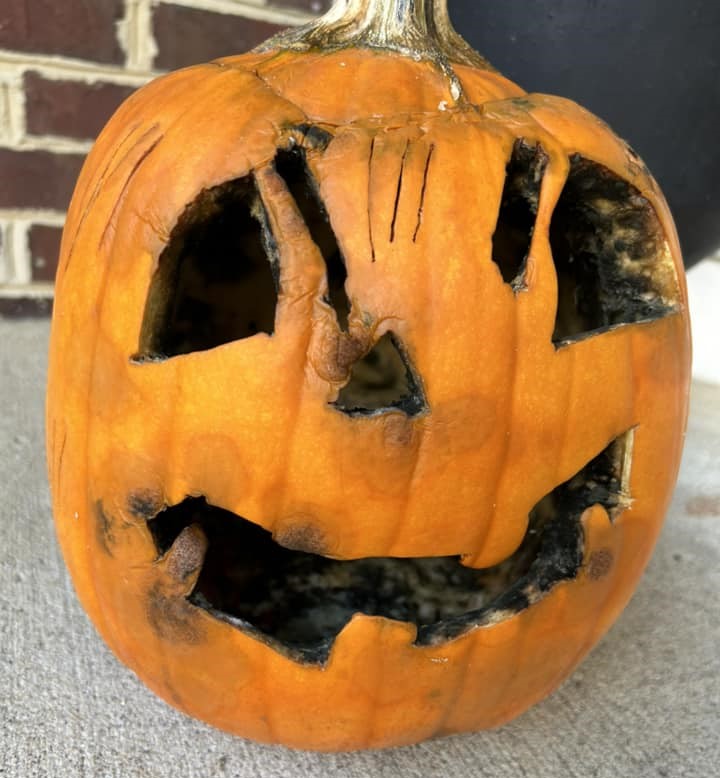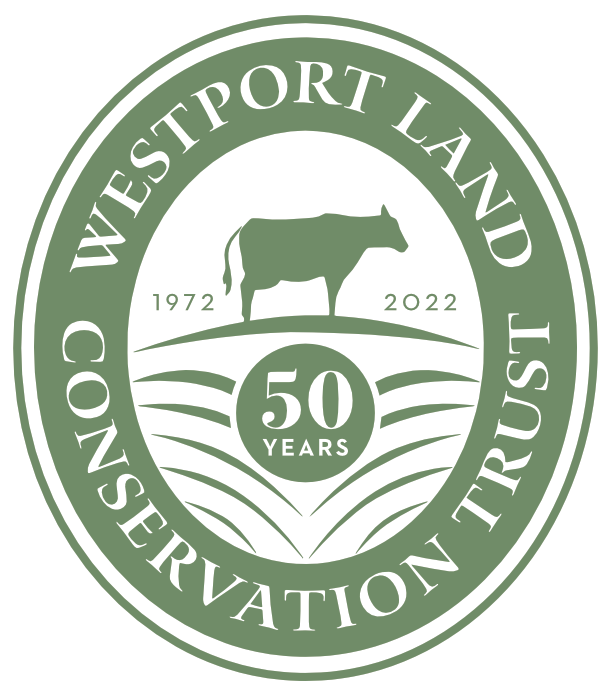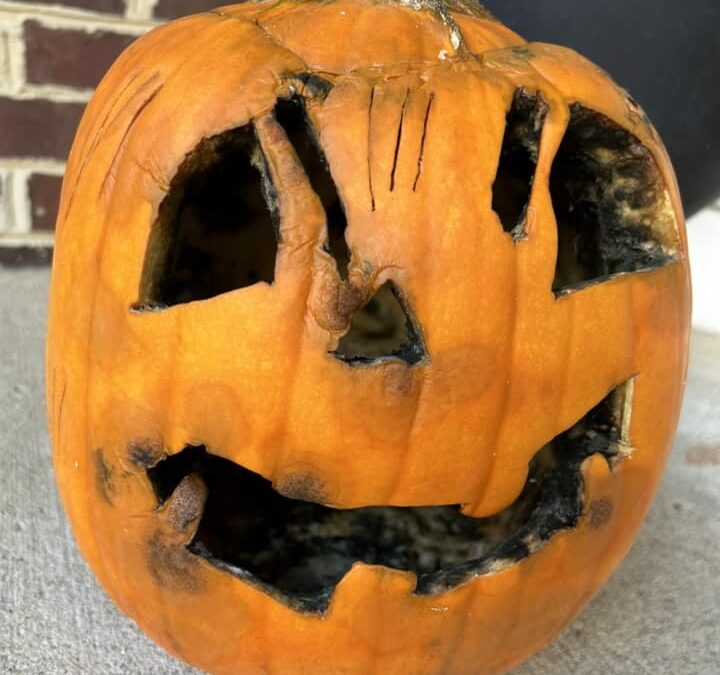
Do you remember reading (or watching) Washington Irving’s original spooky tale of the
headless horseman? On that fateful night in Tarry Town, in the late 1700s, Brom
launches a pumpkin (variety unknown) at Ichabod Crane. I wonder where exactly the
pumpkin landed. Maybe it bounced off a stone wall, to lie broken up in a heap of
wet leaves. The professional curiosity in me has me thinking: maybe the following
spring a few small sprouts reached up for sunlight and the next generation of gourd was
able to carry on what we now know as the Legend of Sleepy Hollow.
My best pumpkins–squash and all things Concurbit (noun. any creeping flowering plant
of the mainly tropical and subtropical family Cucurbitaceae, which includes the pumpkin,
cucumber, squashes, and gourds)–have come from my compost pile, sprouting
accidentally, almost in spite of the care put into the formal vegetable garden.
Concurbit seem to thrive in all sorts of environments and are enjoyed by wildlife (and by
chickens and goats). All the more reason to not toss your Jack-o-Lanterns and other
decorative gourds in the trash can this year.
However they meet their demise at your home, make sure they make it over the stone
wall into the back yard, onto a compost pile, or into WLCT’s Pumpkin’ Bin located
in Westport Woods (573 Adamsville Rd) parking lot. If you have small kids and
some woods, go find a rock and smash ’em up, so that the various wildlife can enjoy the
seeds and flesh or act out the Legend of Sleepy Hollow and launch a few pumpkin
heads over a stone wall!
WLCT is happy to take your pumpkins and gourds. We’ll keep the recycling bin up
through November. You can be sure that your pumpkins will be distributed to local
chicken and goat farmers, with the remainder going in our own compost pile here at
Westport Woods.
If you are not composting in your backyard already now is a great time to start! There
are many options out there for bins starting with simple ones made out of pallets
advancing to plastic barrels with turning systems. Check out this fact sheet from
UMASS Extension to get you oriented with the basic do’s and don’ts of backyard
composting.


